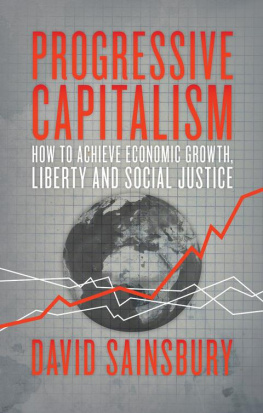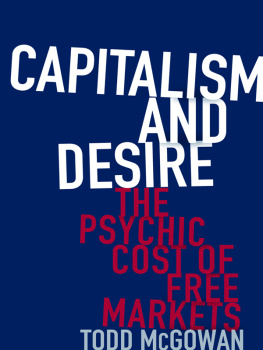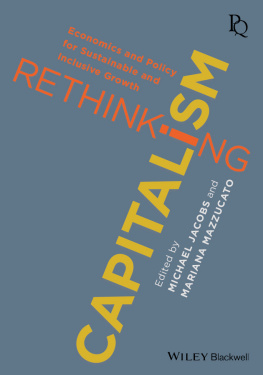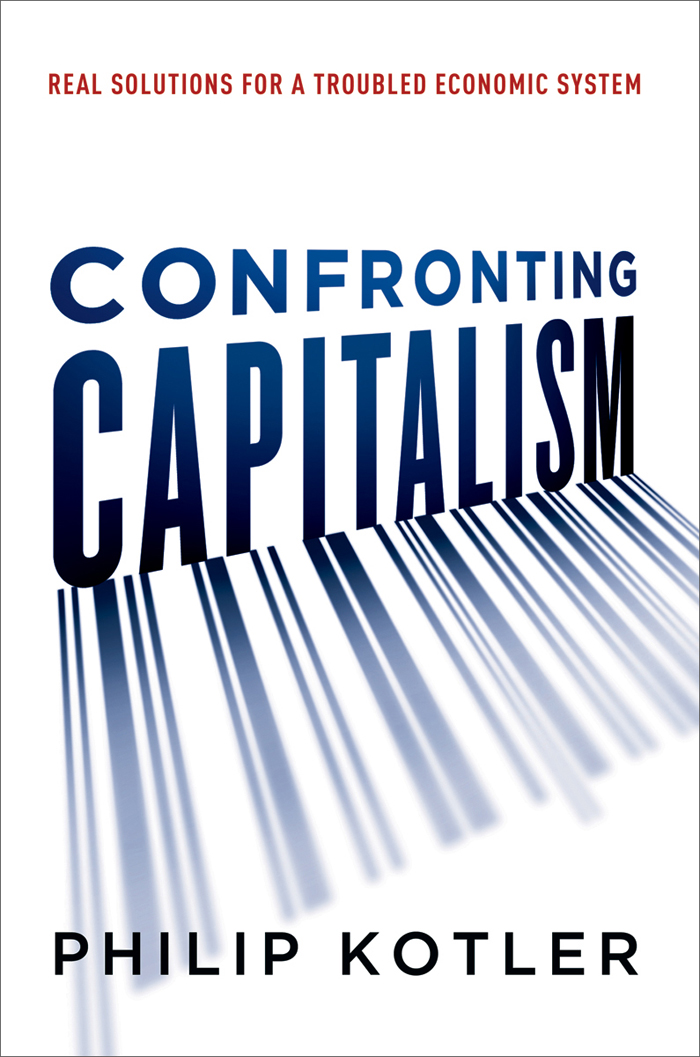Thank you for downloading this AMACOM eBook.
Sign up for our newsletter, AMACOM BookAlert, and receive special offers, access to free chapter downloads, and info on the latest new releases from AMACOM, the book publishing division of American Management Association International.
To sign up, visit our website: www.amacombooks.org

CONFRONTING CAPITALISM
CONFRONTING
CAPITALISM

REAL SOLUTIONS
FOR A TROUBLED ECONOMIC SYSTEM

PHILIP KOTLER

Bulk discounts available. For details visit: www.amacombooks.org/go/specialsales
Or contact special sales: Phone: 800-250-5308 Email: specialsls@amanet.org
View all the AMACOM titles at: www.amacombooks.org
American Management Association: www.amanet.org
This publication is designed to provide accurate and authoritative information in regard to the subject matter covered. It is sold with the understanding that the publisher is not engaged in rendering legal, accounting, or other professional service. If legal advice or other expert assistance is required, the services of a competent professional person should be sought.
LIBRARY OF CONGRESS CATALOGING-IN-PUBLICATION DATA
Kotler, Philip.
Confronting capitalism : real solutions for a troubled economic system / Philip Kotler. -- 1 Edition.
pages cm
Includes index.
ISBN 978-0-8144-3645-5 (hardcover) -- ISBN 0-8144-3645-5 (hardcover) -
ISBN 978-0-8144-3646-2 (e-book) 1. Capitalism. 2. Capitalism--Social aspects.
3. Economic policy. I. Title.
HB501.K5966 2015
330.122--dc23 2014042242
2015 Philip Kotler.
All rights reserved.
Printed in the United States of America.
This publication may not be reproduced, stored in a retrieval system, or transmitted in whole or in part, in any form or by any means, electronic, mechanical, photocopying, recording, or otherwise, without the prior written permission of AMACOM, a division of American Management Association, 1601 Broadway, New York, NY 10019.
The scanning, uploading, or distribution of this book via the Internet or any other means without the express permission of the publisher is illegal and punishable by law. Please purchase only authorized electronic editions of this work and do not participate in or encourage piracy of copyrighted materials, electronically or otherwise. Your support of the authors rights is appreciated.
About AMA
American Management Association (www.amanet.org) is a world leader in talent development, advancing the skills of individuals to drive business success. Our mission is to support the goals of individuals and organizations through a complete range of products and services, including classroom and virtual seminars, webcasts, webinars, podcasts, conferences, corporate and government solutions, business books, and research. AMAs approach to improving performance combines experiential learninglearning through doingwith opportunities for ongoing professional growth at every step of ones career journey.
Printing number
10 9 8 7 6 5 4 3 2 1
CONTENTS
FREE SAMPLE CHAPTER FROM LEADING AT THE EDGE
by Dennis N. T. Perkins with Margaret P. Holtman and Jillian B. Murphy
INTRODUCTION
CREATING HIGH-PERFORMANCE CAPITALISM
The difference between what we are doing and what we are capable of doing would solve most of the worlds problems.
MAHATMA GANDHI
There are scores of books on capitalism, most of them defending it, several criticizing it, and many just trying to explain it. Why would anyone want to write another book on capitalism?
I have five reasons for doing so.
First, I want to understand it myself. My family, friends, and acquaintances around the world live in a market economy run on a system called capitalism. They tell me they want to understand capitalism better.
Second, I believe capitalism is better than any other system. But I also believe that it has fourteen major shortcomings. I wanted to examine these shortcomings and their ramifications.
Third, I want to examine and propose solutions to each of the fourteen shortcomings that would help make capitalism perform better and benefit more people.
Fourth, many readers want a shorter book on capitalism to get their thinking started. Thomas Pikettys book, Capital in the Twenty-First Century (Belknap Press, 2014), has sold over 200,000 copies, but most book buyers did not read the 500 or so pages beyond the first couple of chapters. In this busy age, we need more concise accounts of social and economic systems that deeply affect our lives. Piketty focused only on income inequality, which is only one of fourteen shortcomings of capitalism that need to be examined.
Fifth, I believe that my background provides an opportunity to develop some special insights into the workings of capitalism. I am a classically trained economist who studied under three great and opposite-thinking Nobel Prizewinning economists, namely, Professor Milton Friedman of the University of Chicago, who represented free market thinking, and Professors Paul Samuelson and Robert Solow of MIT, who represented Keynesian thinking. My goal was to apply macro- and microeconomic theory to understand company decision making aimed at winning market share in highly competitive markets. I feel that economists have neglected the role and power of marketing to shape and influence markets. Marketing is one of the bedrock concepts in a capitalist society. As a behaviorally oriented market economist, I focus my attention on the functioning of the five major players in a market economy: business enterprises, nonprofit organizations, financiers, households, and government. Capitalism, management, and marketing must be joined into a comprehensive framework to understand marketplace developments and impacts. I hope this book achieves that goal.
Youll read in todays media about other ideas proposing improved forms of capitalism, including Compassionate Capitalism, Inclusive Capitalism, Humane Capitalism, Humanistic Capitalism, Healthy Capitalism, and Neo-Capitalism. These are all efforts to improve both the image and the functioning of capitalism. There is a broad swath of public opinion suggesting that people want to end Cowboy Capitalismwhere anything and everything is acceptable in the pursuit of profits. They want to save capitalism from itself as it continues to disenfranchise and disenchant many citizens.
In 2014, the Harvard Business School surveyed its alumni and reported this finding: The United States is competitive to the extent that firms operating here do two things: win in global markets and lift the living standards of average Americans. The U.S. economy is doing the first of these but failing at the second. Recently, Harvard professor Michael Porter went on to say: This is a critical moment for our nation. Business leaders and policy makers need a strategy to get our country on a path towards broadly shared prosperity. Professor Jan Rivkin added, Firms can escape the weaknesses in the U.S. business environment by moving abroad, but workers cant.













